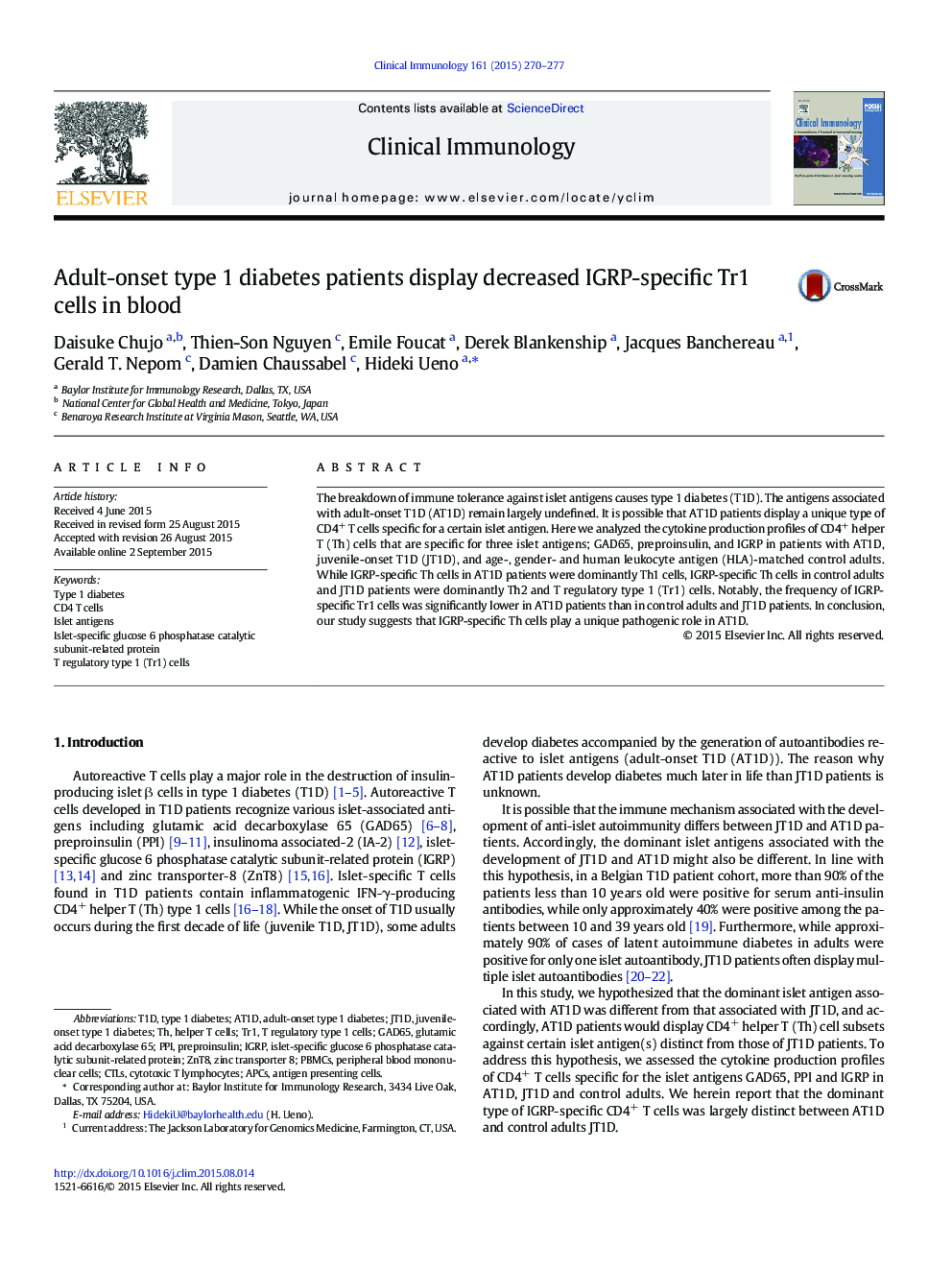| Article ID | Journal | Published Year | Pages | File Type |
|---|---|---|---|---|
| 6087125 | Clinical Immunology | 2015 | 8 Pages |
â¢IGRP-specific CD4+ T cell responses is distinct between T1D and healthy.â¢Decreased IGRP-specific Tr1 cells contribute to the onset of adult-onset T1D.â¢The pathogenesis of adult- and juvenile-onset T1D is not completely identical.
The breakdown of immune tolerance against islet antigens causes type 1 diabetes (T1D). The antigens associated with adult-onset T1D (AT1D) remain largely undefined. It is possible that AT1D patients display a unique type of CD4+ T cells specific for a certain islet antigen. Here we analyzed the cytokine production profiles of CD4+ helper T (Th) cells that are specific for three islet antigens; GAD65, preproinsulin, and IGRP in patients with AT1D, juvenile-onset T1D (JT1D), and age-, gender- and human leukocyte antigen (HLA)-matched control adults. While IGRP-specific Th cells in AT1D patients were dominantly Th1 cells, IGRP-specific Th cells in control adults and JT1D patients were dominantly Th2 and T regulatory type 1 (Tr1) cells. Notably, the frequency of IGRP-specific Tr1 cells was significantly lower in AT1D patients than in control adults and JT1D patients. In conclusion, our study suggests that IGRP-specific Th cells play a unique pathogenic role in AT1D.
